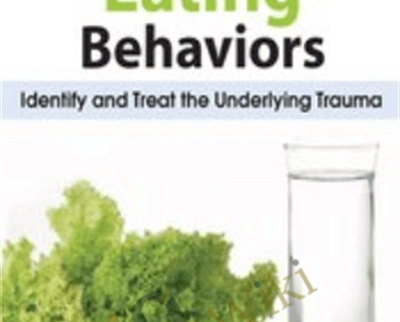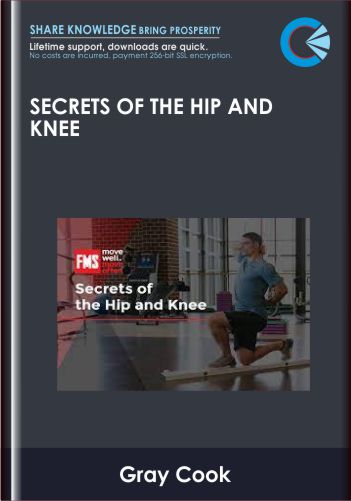Disordered Eating Behaviors: Identify and Treat the Underlying Trauma – Lori Kucharski
$199.99 $61.00
Disordered Eating Behaviors: Identify and Treat the Underlying Trauma – Lori Kucharski
$199.99 $61.00
Status: AVAILABLE – Download immediately
Salepage: Click HERE – Archive:
Combined file size: 1.8 GB
Included files: 1 mp4, 1 pdf (mp4, pdf)
Languages: English
Disordered Eating Behaviors: Identify and Treat the Underlying Trauma – Lori Kucharski is a digital course. You can access to learn every time. We can make the most of our free time. Let combining study and work, or balance with daily life becomes much simpler at wecor.site!
As you perform your typical intake with a new client, you review their eating habits. There are indications of abnormal eating behaviors like yo-yo dieting and restrictive eating. The client guiltily says things like “I know I should eat healthier.”
Your guard is up, but you quickly move along when their problems don’t take the form of a full-blown eating disorder like anorexia or bulimia.
Disordered eating behaviors are frequently hiding something deeper – serving as a coping mechanism for the unresolved trauma that lies beneath. Without addressing the trauma behind the disordered eating your client will fail to find the relief they seek.
In this recording, you’ll learn how to assess and treat disordered eating from a trauma-informed, body positive lens, for improved outcomes!
You’ll get the skills and essential treatment techniques you need for every stage of therapy, including:
- Tools to diagnose and treat non-DSM-5® disordered eating
- Interventions for reducing trauma symptomology related to disordered eating behaviors
- Evidence-based strategies to reframe clients’ damaging relationship with food
Experience the satisfaction of helping your clients to resolve their traumas and release the unhealthy disordered eating behaviors with this powerful non-diet paradigm!
- Express a thorough understanding of childhood trauma, attachment, dissociation, and the researched, causal link to disordered eating.
- Utilize evidence-based, assessment tools and interventions for disordered eating, trauma, and dissociation, as well as spouses/partners and families/caregivers.
- Examine the history of eating disorder treatment, disordered eating in the United States, and the socio-political/cultural factors involved in disordered eating.
- Identify how to diagnose and treat non-DSM-5® disordered eating.
- Evaluate personal behaviors or counter-transference that could be impeding treatment efficacy.
- Apply case studies and conceptualization for incorporating body-positive terminology, awareness and intervention.
Prepare Yourself for Every Stage of the Therapy Process
- Intake Strategies for Successful Therapeutic Intervention
- Looking beyond anorexia, bulimia and bingeing
- Conclusive questions for improving your client intake
- Red flags of disordered eating
- Address common issues that may not be in DSM-5®: Orthorexia, compulsive overeating, diabulimia
- Digging for the roots: is the disordered behavior a result of previous trauma?
Implement Comprehensive Clinical Assessments
- How to choose the right assessment for your client
- Specific assessments for the spectrum of disordered eating and trauma
- Additional tools for depression, trauma, or other comorbid conditions
- How and when to use assessments for tracking progress
- Frequency considerations – get what you need without client burnout
- Collaboration within the treatment team
Techniques and Interventions to Transform Your Therapy
- Non-diet paradigm to transform your client’s relationship with food
- Health at Every Size (HAES)
- Intuitive eating
- Respect, love and nurturance for self
- Reframing your approach as the clinician
- Trauma-informed tactics for each stage of counseling
- Trauma Specific Evaluation of Intake Procedure: what NOT to say/do
- Process and treat trauma and dissociation
- Determine the appropriate order of interventions
- Avoid re-traumatization
- Therapeutic techniques that assist in stabilization
- EMDR
- IFS Mapping: Address the various mindsets of each patient
- Attachment focused work: Self and others
- Art and sand tray interventions, journaling/logging
- Therapeutic approaches for stabilization
- Evaluate the Window of Tolerance
- Incorporation of Polyvagal Theory to increase client stability
- Prevent overwhelming trauma symptoms
Put It All into Action: Considerations for Implementation Into Your Practice
- Overcome common blocks in therapy
- Systemic vs. individual: When to include family/partners
- Self of the therapist exercise: Countertransference, bias
- Case discussions and video demonstrations
- Effective documentation for ongoing treatment
- Risks and limitations
Purchase the Disordered Eating Behaviors: Identify and Treat the Underlying Trauma – Lori Kucharski course at the best price at Wecor and unlock a world of knowledge at the best price. Upon completing your purchase, you'll receive instant access to the downloads page, allowing you to download all associated course materials. Additionally, we'll send a download notification email directly to your inbox.
Unlock your full potential with Disordered Eating Behaviors: Identify and Treat the Underlying Trauma – Lori Kucharski courses. our courses are designed to help you excel.
Our Disordered Eating Behaviors: Identify and Treat the Underlying Trauma – Lori Kucharski courses are thoughtfully designed to help you unleash your full potential and excel in your chosen field. Don't wait; take the first step towards greatness by purchasing our courses today. We offer a seamless and secure transaction experience, ensuring your peace of mind throughout.
Rest easy knowing that your financial information is protected by our trusted payment gateways, Stripe and PayPal. Stripe, renowned for its robust security measures, provides a safe and reliable payment process with encrypted technology that keeps your sensitive data confidential. PayPal, a globally recognized payment platform, adds an extra layer of security through its buyer protection program, ensuring your financial details are safeguarded.
Is it secure? to Use of?
- Your identity is treated with utmost confidentiality, and we do not share your information with anyone. Purchasing theDisordered Eating Behaviors: Identify and Treat the Underlying Trauma – Lori Kucharski course is entirely safe.
- 100% Safe Checkout Privateness coverage
- Secure Communication and Encryption of Sensitive Data
- Card numbers are encrypted using AES-256, and transmitting card numbers occurs in a separate hosting environment, guaranteeing the security of your data.
Course Delivery:
- Upon successful payment for the “Disordered Eating Behaviors: Identify and Treat the Underlying Trauma – Lori Kucharski course”, Most of the products will come to you immediately. But for some products were posted for offer. Please wait for our response, it might take a few hours due to the time zone difference.
- If any delays occur, please be patient. Our technical department will process the link shortly after, and you'll receive notifications directly via email. We appreciate your understanding.
What Shipping Methods Are Available?
- You will receive a download link in the invoice or YOUR ACCOUNT.
- The course link always exists. use your account to login and download the Disordered Eating Behaviors: Identify and Treat the Underlying Trauma – Lori Kucharski course whenever you need.
- You only need to visit a single link, and you can get all the Disordered Eating Behaviors: Identify and Treat the Underlying Trauma – Lori Kucharski course content at once.
- You can do your learning online. You can be downloaded for better results and can study anywhere on any device. Make sure your system does not sleep during the download.
How Do I Track Order?
- We always notice the status of your order immediately after your payment. After 7 days if there is no download link, the system will automatically complete your money.
- We love to hear from you. Please don’t hesitate to email us with any comments, questions and suggestions.















